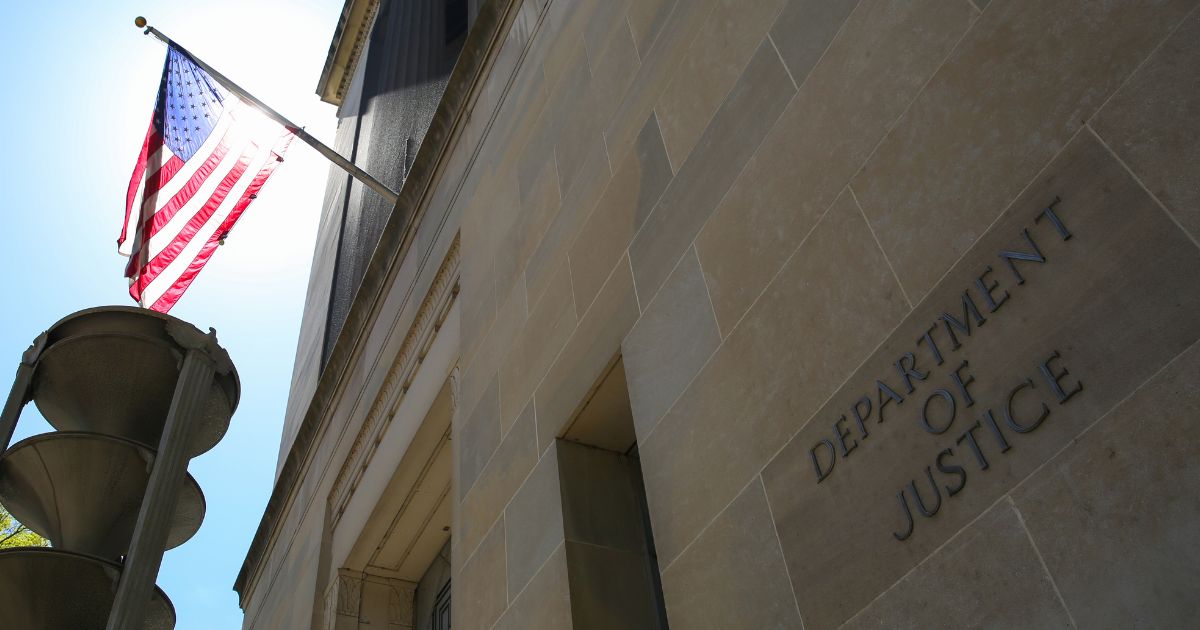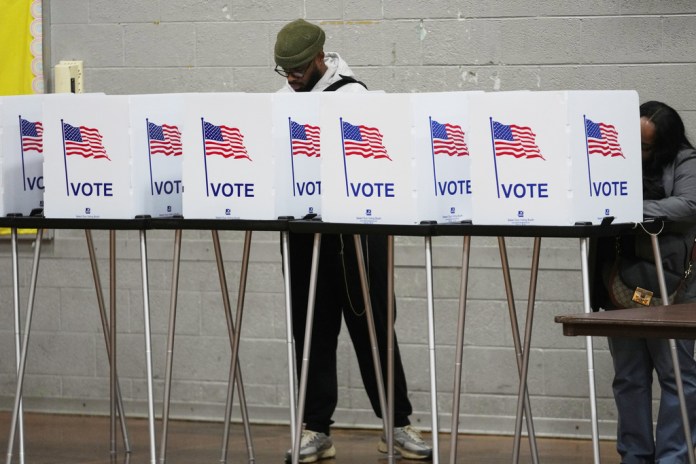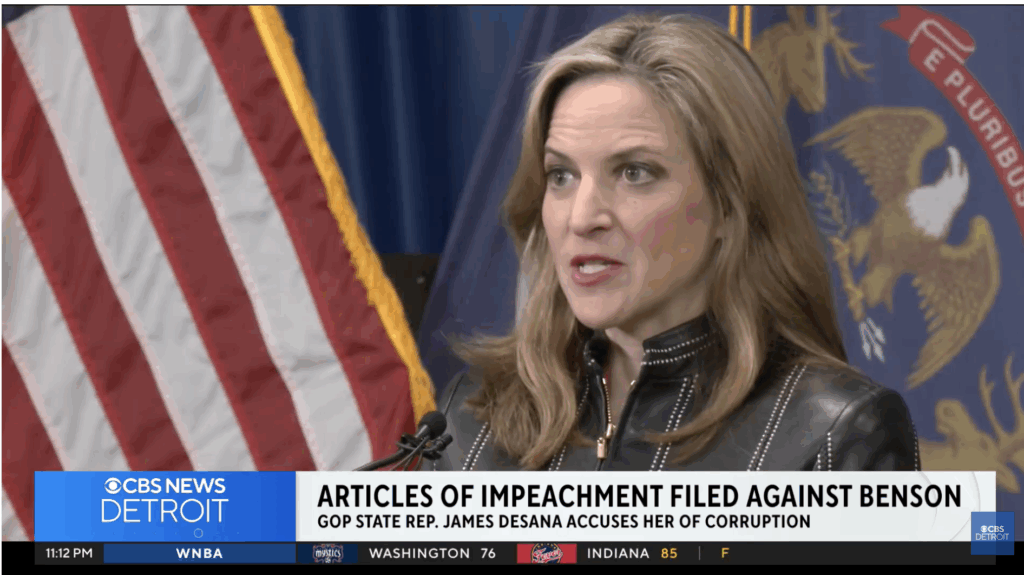Bill Targets Loophole That Lets Overseas Voters Use Outdated Addresses
The article discusses a loophole in U.S.election law that allows overseas voters who have never lived in certain states-such as children of American expats-to vote in those states, including key swing states like Georgia. This situation arises under the Uniformed and Overseas Citizen Absentee Voting Act (UOCAVA), which permits military and overseas citizens to vote absentee but, in practise, allows non-military citizens who never resided in the U.S. to vote based on their parents’ last registered address.
To address this issue, Republican lawmakers introduced the Proving residency for Overseas Voter Eligibility (PROVE) Act. This legislation aims to require non-military overseas voters to prove current residency for themselves or close family members in the state where they seek to vote. If they cannot, they would be limited to voting as federal-only voters in Washington, D.C., preserving their right to vote in federal elections but preventing influence over state and local governance where they have no ties.
The PROVE Act would also push for verification processes to ensure the validity of overseas addresses used in voter registrations, though some specific provisions for proof are not yet detailed. Experts praise the bill as a positive step toward election integrity. Additional suggested reforms include banning electronic voting for overseas citizens and requiring identity and citizenship verification alongside mail-in ballots to prevent potential fraud and misuse of absentee voting rights.
Imagine a pair of American expats who once lived in Georgia move to France and have a baby. When the baby turns 18, he gets to vote in American elections, despite never having lived there. Not only that, he gets to vote in swing state Georgia, even though he’s never been and his parents haven’t been there for decades. That loophole in our election law currently allows an untold number of voters to vote in major swing states where they have no connection.
To help remedy the loophole, a new Republican-led bill would tighten the rules.
U.S. military members, their family members, and other overseas citizens have been allowed to vote absentee since 1986 under the Uniformed and Overseas Citizen Absentee Voting Act (UOCAVA). But 38 states, like Georgia, and Washington, D.C. permit non-military citizens who have “never resided in the U.S.” to vote so long as they have a parent or legal guardian that was last registered in that state. Even if the voter’s parents no longer live there, their last registered address can still be used. Citizens currently living overseas can also vote using their last U.S. address of domicile, even if they no longer currently reside there or have any affiliation with the state.
Republican Reps. Abe Hamadeh (AZ), Tim Burchett (TN) and Andy Ogles (TN) have since introduced the Proving Residency for Overseas Voter Eligibility (PROVE) Act.
The legislation would amend UOCAVA to require that non-military overseas voters to prove they or a spouse or parent/guardian hold current residency in a state in which they are trying to vote. If a voter cannot prove a current residence of himself or his parents, spouse, or legal guardian in the state in which he is trying to vote, he will be able to vote as a federal-only voter in Washington, D.C.
Currently, overseas voters must provide an address — but there’s no requirement to verify it. According to Hamadeh’s legislative director Cam Erickson, the PROVE Act would change that by requiring states to verify the current address through existing voter roll maintenance processes. The bill also empowers states to require proof of residency — such as utility bills, property records, etc., — before a ballot can be sent, Erickson argues. But as of now, the current draft of the legislation includes no specific language of such provisions.
The PROVE Act is a step in the right direction, Election Law Reform Initiative and Senior Legal Fellow at the Edwin Meese III Center for Legal and Judicial Studies Hans von Spakovsky tells The Federalist.
“The typical civilian Congress was looking at [when UOCAVA was created] was, for example, a State Department foreign service officer in Europe for a several-year assignment who would return to his or her home in Maryland or Virginia or another state when that assignment ended,” Spakovsky told The Federalist. Spakovsky explained the legislation was surely not intended to permit expatriates, or other individuals who left the country and have no intention of ever returning, to continue voting.
“Children [of parents who were former residents and] who’ve never been residents, have no right to participate in the political process of that state and influence who will be in state government leadership,” he continued.
Spakovsky said that allowing non-military overseas voters to vote as federal-only voters in D.C. for president and vice president “would preserve their right to vote over who leads the national government as they remain U.S. citizens without allowing them to interfere in the governance of states and a state’s congressional delegation.”
As pointed out in these pages by Frederick Woodward, there is room for additional safeguards to the UOCAVA process. One safeguard would be to ensure that ballots are not mailed continuously to “insecure addresses in foreign countries” if a UOCAVA voter stops sending the annual Federal Post Card Application (FPCA). All states are required to accept the application from those who fall under UOCAVA as both a registration form and an official request for an absentee ballot. One issue with FPCA, however, is that it permits voters to indicate whether they want to receive “voting materials” via “email or online.” According to the Federal Voting Assistance Program (FVAP) “2020 Overseas Citizen Population Analysis Report,” “email was the most common mode of ballot receipt in 2020” for overseas voters, “unlike in 2018 and 2016.”
Therefore, as Woodward wrote, top priorities for UOCAVA reform should also include banning electronic voting for overseas citizens, as well as requiring civilian voters send a photocopy of their passports or other acceptable ID “along with their hand-signed mail-in ballot.”
Woodward further suggests reforms to the UOCAVA application should “require identity and citizenship verification.”
" Conservative News Daily does not always share or support the views and opinions expressed here; they are just those of the writer."




